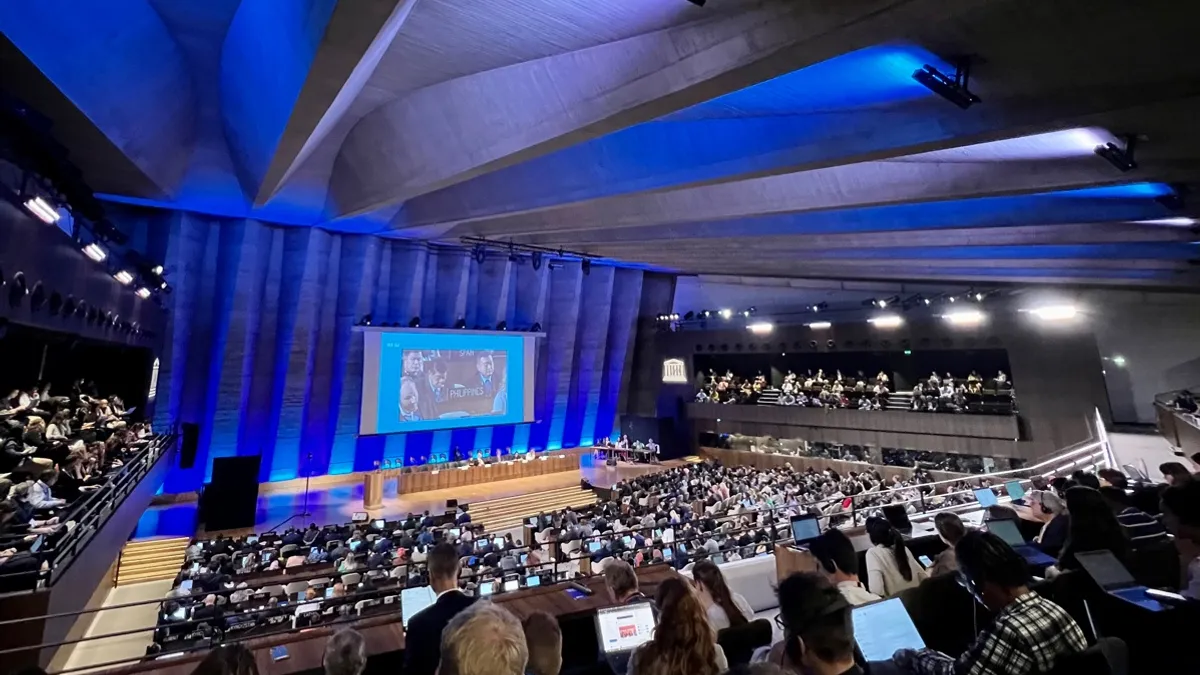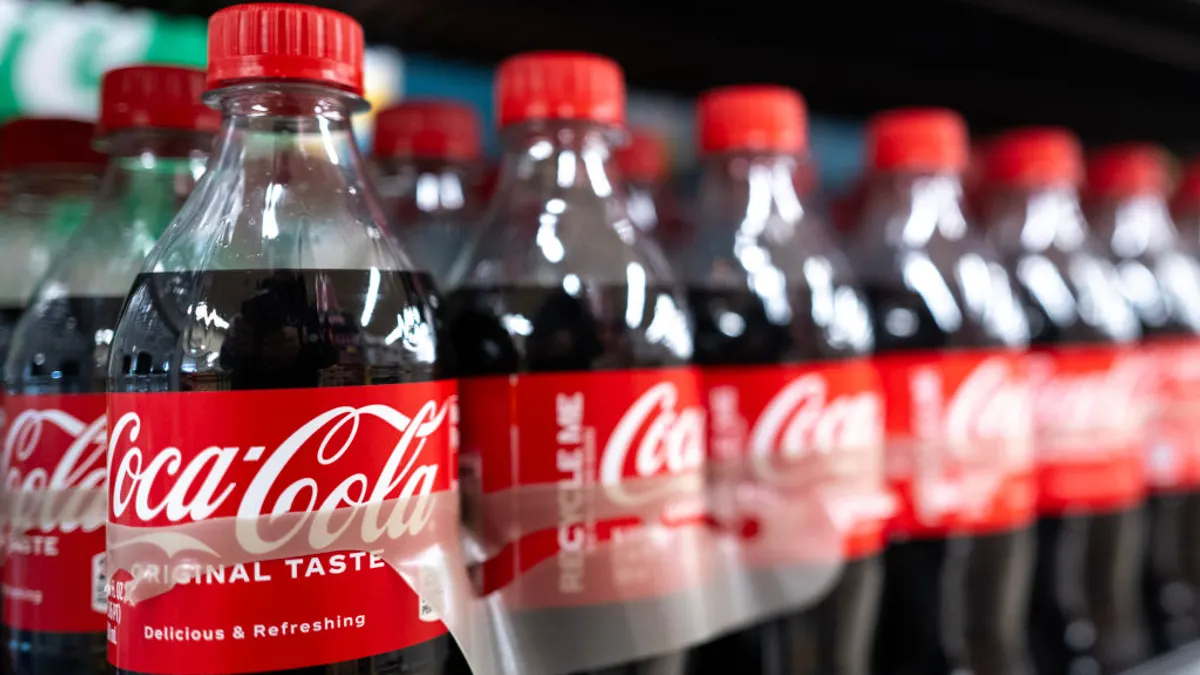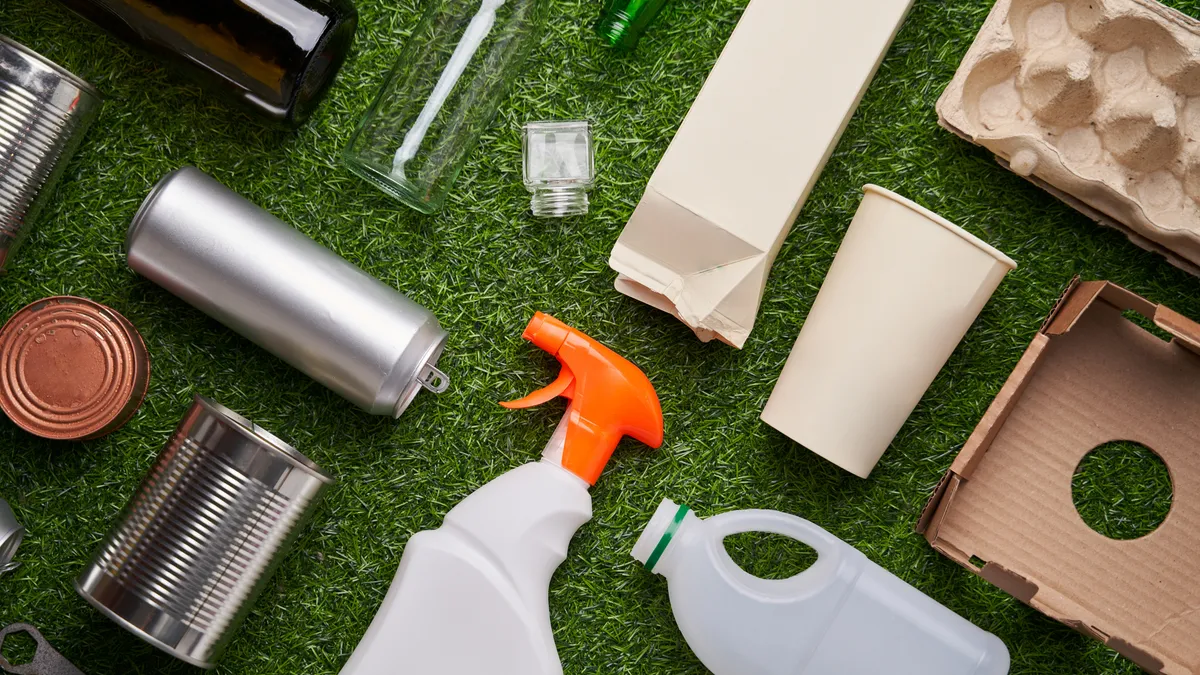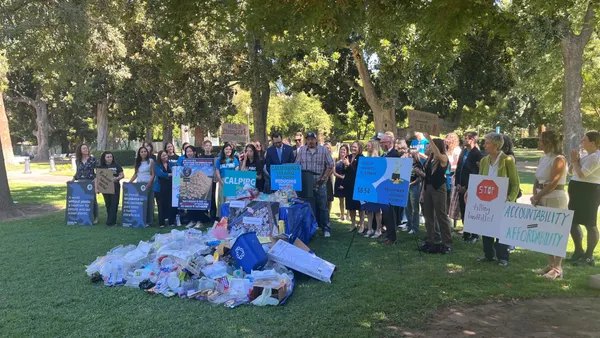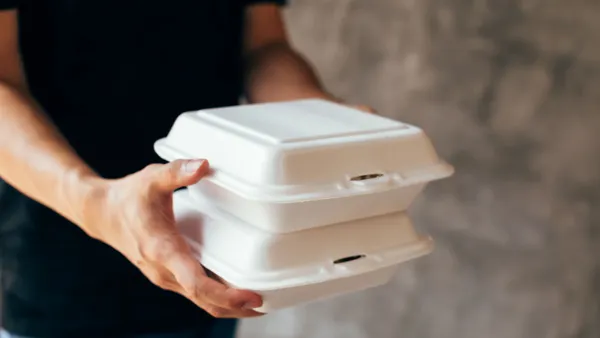Dive Brief:
- Action toward an international, legally binding agreement on plastic pollution, which could have implications for plastic packaging, moved forward at a United Nations Environment Programme negotiating session in Paris last week.
- Over 1,700 participants, including more than 700 delegates from 169 member states and more than 900 observers from NGOs, participated in the session, UNEP reported. Areas of disagreement reportedly included whether there would be caps on the production of new plastic and whether certain measures would be voluntary or binding.
- The UN initiated the process in 2022 to “end plastic pollution” by addressing the production, design and disposal of plastic. An initial draft will be discussed at the next round of talks in November at UNEP headquarters in Nairobi, Kenya, with an aim of solidifying an agreement by 2024.
Dive Insight:
While a draft has yet to be seen, the agreement could have serious future implications for plastic packaging.
“Plastic has been the default option in design for too long,” said Inger Andersen, executive director of UNEP, in a statement. “It is time to redesign products to use less plastic, particularly unnecessary and problematic plastics, to redesign product packaging and shipping to use less plastic, to redesign systems and products for reuse and recyclability and to redesign the broader system for justice.”
UNEP released an options paper, based on the first session at the end of last year in Uruguay as well as on written submissions from member states, prior to the Paris session. The paper laid out possible voluntary or compulsory measures for the draft, ranging from strengthening waste management to phasing out or reducing the supply of primary plastic polymers. It also noted extended producer responsibility as a principle to consider.
Numerous packaging companies, including Amcor, Mondi and Emerald Packaging, are engaged in treaty negotiations via the Business Coalition for a Global Plastics Treaty, convened by the Ellen MacArthur Foundation and World Wildlife Fund. Other major producers, including PepsiCo, Unilever and 3M, are also involved in the coalition. The coalition wrote in a statement that the Paris talks laid a “solid foundation” and called for legally binding global rules and harmonized policies.
“We are greatly encouraged that more than 130 member states have specifically called for binding rules that will create a level playing field for all businesses,” it said. “Leading businesses recognise that ambitious goals and aspirations to end plastic pollution in a treaty have little value on their own, and hope that the zero draft will contain clear policy measures that help us get there.”
Rachel Kipar, director of recyclability solutions for The Recycling Partnership, said U.S. companies and NGOs are already working on “critical elements that will likely be reflected in the draft treaty,” such as harmonized standards, labeling processes and definitions for circular design. At the same time, U.S. states are beginning to learn “incredibly fast about the challenges and opportunities” of recycling policy as they enact EPR and other recycling legislation, she said in an email.
Erin Simon, vice president and head of plastic waste and business at WWF, criticized “delay tactics” by some member states that took up time early in the week over procedural questions.
“We ambitiously, as a global community, said that this treaty needed to be negotiated in two years because that is the speed at which the planet requires us to work on it,” Simon said. “Every time we have those delays, they decrease the amount of productive time that the global community has together to figure out these paths forward on a really complicated set of solutions.”
Simon said WWF, like other organizations, will offer itself as a technical resource to UNEP as it works on treaty text in the coming months. And WWF will continue its efforts in this realm outside of the UN process. “We won't wait for the treaty. We'll just continue starting to push toward the that endgame as best as we can and use the role we have as a global convener to do that,” Simon said.
During an event hosted by The Economist before last week’s negotiating sessions, Andersen emphasized the importance of packaging redesign. When asked whether there ought to be an absolute reduction in the production of plastics, Andersen said that’s up to member states to decide, but — speaking as an economist — limiting the availability of virgin material would boost the value of recycled content. “I think that getting a global agreement around that would be complex, but, hey, well worth a try,” she said. Another strategy would be to have targets for recycled content, she said.
In addition to November’s meeting in Kenya, UNEP plans to hold meetings in Ottawa, Canada, in April 2024 and in the Republic of Korea in October or November 2024.




